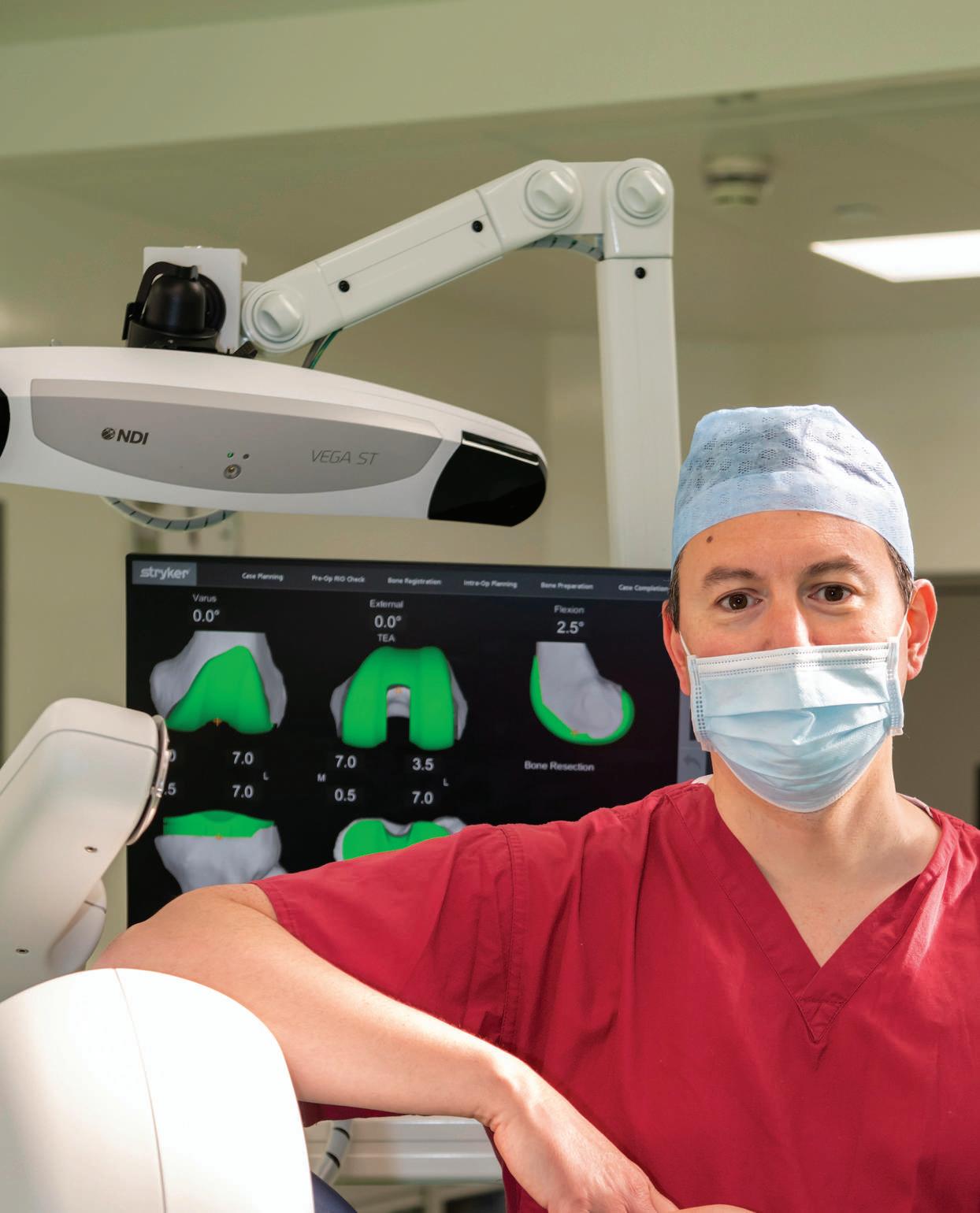
3 minute read
Supporting pioneering patient care
uclhcharity.org.uk/does/supporting-patient-care
We fund a wide range of projects that ensure UCLH patients benefit from the latest, state-of-the-art developments.
Advertisement
Robotics expansion programme
At the height of the pandemic, we received a bid to invest further in robotic technology at UCLH. The refreshed and new robotic equipment across three sites will help to treat patients whose surgery has been postponed in the last year, and will facilitate surgery in a range of specialties which have not used robotic technology at UCLH before, such as ear, nose and throat and orthopaedic surgery. It will also cement UCLH’s position as a centre of excellence for robotic surgery, building on the work undertaken at Westmoreland Street on urology patients. The benefits of robotic surgery are well documented – more precision, quicker recovery, reduced risk of infection and shorter hospital stays. This is ever more important as the NHS adapts to the post pandemic ‘new normal’ where demand for surgery is likely to remain high for many months.
CASE STUDY
Stephen Hunt
Stephen Hunt was one of the first patients to undergo knee surgery using the charity-funded Mako robot in the new Grafton Way Building in April 2021.
“I’ve always been a keen footballer and have done a bit of cycling. At 57 my knees were telling me it was time to stop, I was referred to UCLH and was told I’d need both knees replaced. That was February 2020 and of course, Covid-19 had other ideas. “Fast forward to April 2021 and I had robot-assisted surgery on both knees at the same time. I was talked through how the three hour procedure would be done, using the robot and 3D scanning technology to guide the surgery during the operation, which offers more precision. “I was in hospital for three days. The brand new hospital is beautiful, spotlessly clean and very modern. The staff were fantastic and you could really feel the sense of pride they felt in their new hospital.”
We are providing funds to support specialist speech and language therapy for people with primary progressive aphasia and other rare dementias. This service, based at the National Hospital for Neurology and Neurosurgery, aims to improve quality of life and maintain independence for people living with these diagnoses. Funding will enhance the existing service. There will also be opportunities to explore collaborations with National Institute for Health Research funded research.
This year we have funded a project to bring music therapy to the neuro-rehabilitation unit (NRU) at the National Hospital for Neurology and Neurosurgery. The NRU is a regional centre of excellence for severely brain injured patients with complex rehabilitation needs. In 2019, the unit hosted a trainee music therapist. The effect on patients, their families and carers and staff, was described as ‘transformative’ prompting the team to submit an application for charitable funding for a two year music therapy project pilot. We are very excited to see the results of the pilot in the coming year.
Communications
We funded iPads to help patients keep in touch with loved ones.
Supporting people with learning disabilities
In 2018, we funded the UK’s first health play specialist for people of all ages with learning disabilities. Since then, over 190 referrals have been received to support patients coming to UCLH for a wide range of tests and treatments, including blood tests, outpatient appointments and admissions. The health play specialist works with patients to alleviate stress and fear around hospital visits by taking time to gain trust and build rapport. This can result in a more positive individual patient experience, improved attendance at appointments and compliance with procedures. The feedback is overwhelmingly positive from patients, families and carers and staff alike. Covid-19 disrupted plans to make this post substantive. In 2020/21, UCLH Charity granted an extension ensure continuity of this vital service.





